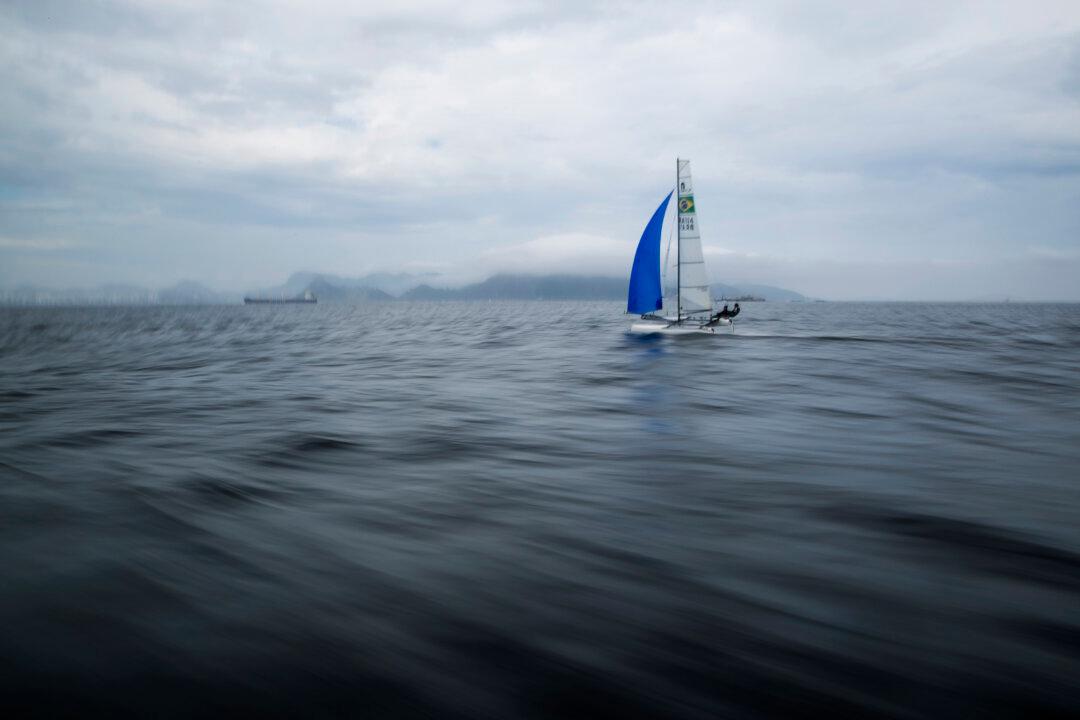LONDON—Competing in waters in the picturesque heart of Rio de Janeiro. Staying in the Olympic village with tickets and the ceremonies. And, most importantly, collecting an Olympic medal. These will justify the risk of being infected by Rio’s polluted waters, according to a World Sailing federation official.
Sarah Gosling, a two-time Olympic champion who now sits on the World Sailing council as the athletes’ representative, does not deny the viruses and bacteria pose a danger in Rio’s sewage-infested waters.
The Briton simply believes that Olympic glory makes the risk worthwhile.
“Winning a gold medal will make up for anything—it’s really not that relevant,” Gosling said on Tuesday, discussing the fetid waters. “There are plenty and plenty of reports out there about athletes who their whole life is about winning medals, and anything that happens on the way is kind of irrelevant.”
Tests conducted by The Associated Press this year exposed the pollution levels in Rio’s waterways. The most recent results released this month showed more contamination than previously believed, increasing the risk to athletes.
In July, the AP reported disease-causing viruses directly linked to human sewage at levels up to 1.7 million times what would be considered highly alarming in the U.S. or Europe. Experts said athletes were competing in the viral equivalent of raw sewage, and exposure to dangerous health risks almost certain.
Recent tests showed the sailing venue of Guanabara Bay to be as rife with pathogens far offshore as it was nearer land, where raw sewage flows from contaminated rivers and storm drains.
“Obviously pollution is a problem, the objects in the water are an issue, but we as athletes do feel the ISAF (World Sailing) and the IOC are doing everything they can within the constraints of it being in Brazil,” Gosling said. “For sailing to be in the center of the Olympics right there, for athletes to be able to stay in the village, to be able to go to the opening and closing ceremony, it’s a massive deal.
“And the pictures and the films will be incredible. So, while athletes obviously want it to be fair, safe, and clean, just to be there and be part of the actual Rio Olympics is awesome.”





